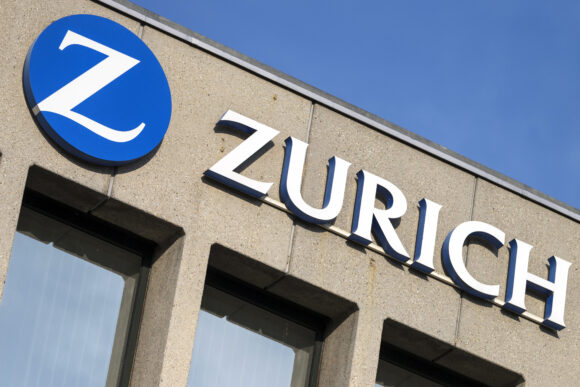Zurich Insurance Group AG has selected Australia as the first market for its private credit strategy in Asia-Pacific, awarding a $170 million mandate as it seeks opportunities to invest in local assets.
The insurer assigned the mandate to an Australia-based firm in the third quarter, Matt Vincent, the APAC chief investment officer at Zurich Insurance said in an interview in Hong Kong. He declined to name the money manager.
Zurich Insurance joins a number of firms that have accelerated investments in private credit. US life insurers have ramped up private debt investments, allocating close to a third of their $5.6 trillion in assets to the sector last year, up from 22% a decade ago, according to data compiled by research firm CreditSights.
Read more: Zurich Invests Heavily in Underwriting Talent to Boost Mid-Market, Specialty Growth
For Zurich, the $170 million accounts for about 3.4% of the more than $5 billion invested across general and life insurance businesses in Australia, its biggest market in APAC, Vincent said. The company has $12 billion deployed across Asia.
Vincent cited several factors for its Australia deployment, including favorable risk-based capital treatments — a key investment cost metric for insurers — along with liquidity, credit quality, and mid-market lending opportunities.
Globally, Zurich Insurance has put about $10 billion into private debt, the majority of that in Europe and the US, Vincent said. That compares with a $180 billion total invested assets across general and life insurance businesses for the company as of September.
While UBS Group AG Chairman Colm Kelleher has warned of risks stemming from weak and complex regulation amid the private financing boom in the US insurance industry, Vincent said he’s not seeing any systematic risk.
When asked about private credit in Australia, Vincent such illiquid assets are not cut out for trading, and are better held until maturity. “You put them in your bottom drawer, forget about them,” he said.
The insurer has an existing allocation into US dollar-denominated assets via its Hong Kong balance sheet. The investments, done through an external fund, are worth “double-digit millions” of dollars, Vincent said.
Unlike fund structures, which are typically constrained by the manager’s investment framework, segregated mandate accounts — such as the one in Australia — give asset owners greater flexibility and control over their portfolios, he said.
“You are able to parameterize what sort of risk profile that you want,” he said. “What’s the split between fixed and floating rate debt. You’re able to also put some boundaries around what sort of sector exposures do you want.”
Any additional private credit bets in Asia will depend on whether the balance sheets in those markets grow to “critical mass,” which is around $1 billion, he said.
In Malaysia, the company has total invested assets of about $3 billion.
“I’d love to have an allocation in Malaysia,” Vincent said, adding the decision is tied to factors including capital charges and legal matters.
Photograph: A Zurich Insurance Group AG building in Zurich, Switzerland. Photo credit: Alessandro Della Bella/Bloomberg
Was this article valuable?
Here are more articles you may enjoy.



 Florida Insurance Costs 14.5% Lower Than Without Reforms, Report Finds
Florida Insurance Costs 14.5% Lower Than Without Reforms, Report Finds  Judge Awards Applied Systems Preliminary Injunction Against Comulate
Judge Awards Applied Systems Preliminary Injunction Against Comulate  AIG Underwriting Income Up 48% in Q4 on North America Commercial
AIG Underwriting Income Up 48% in Q4 on North America Commercial  Trump’s Repeal of Climate Rule Opens a ‘New Front’ for Litigation
Trump’s Repeal of Climate Rule Opens a ‘New Front’ for Litigation 

